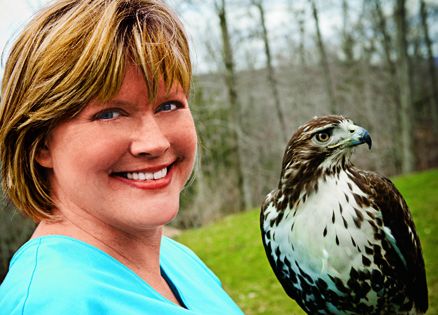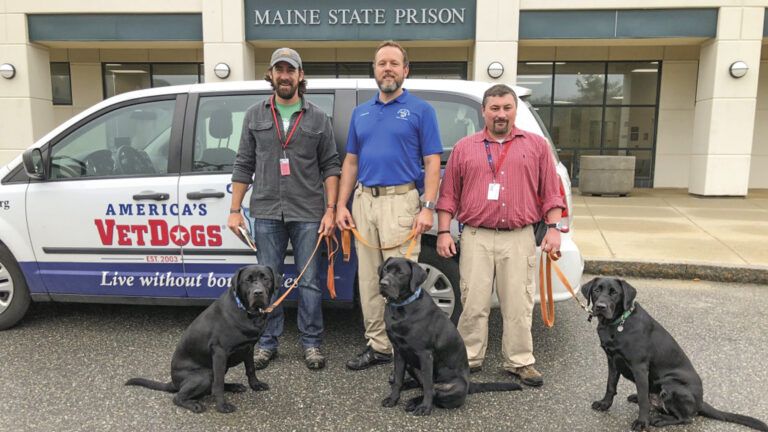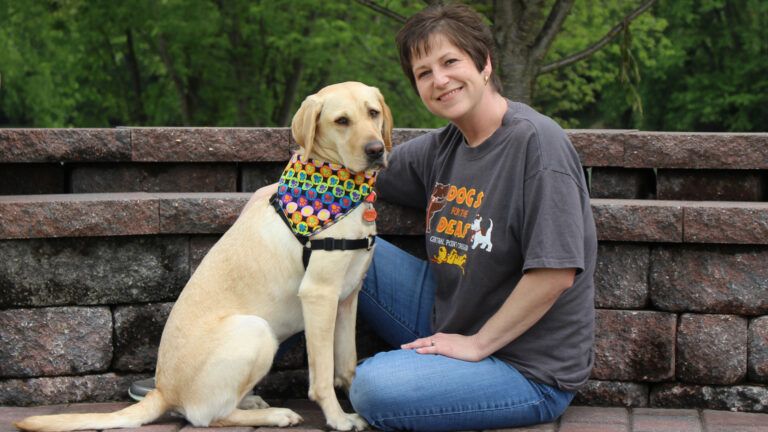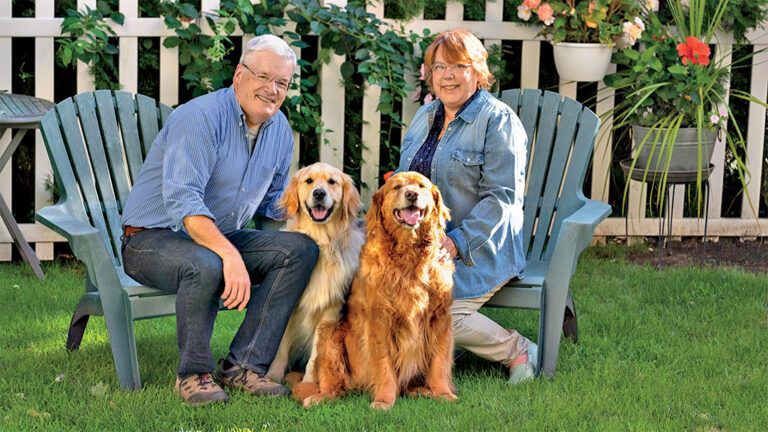The furry, ungainly rodent quivered in the corner of his cage, his beady black eyes darting around. A muskrat. They aren’t common in Pennsylvania, and in the months that I’d been volunteering at Centre Wildlife Care in State College, I’d never seen one. He looked nervous. Scared. Like he was wondering what he was doing here in these strange new surroundings. “I know how you feel, buddy,” I said. Because I felt out of my element too.
A year earlier, my husband, Andy, and I had become empty nesters. We moved from rural Waynesboro—where we’d both grown up—two hours north to State College, a small city. Andy had gotten a new job there and it was closer to the younger of our two daughters, who were in college at Penn State and Gettysburg.
During those first weeks all I could do was think about what we’d left behind: family, friends, our church community. And what I missed even more than I’d imagined I would: my network of animal rescuers.
I’ve been saving animals since I was a little girl. Back then, I took in stray dogs and cats and raised orphaned baby birds till they could fly away. I married Andy, who loves animals as much as I do, and for over 30 years we’d fostered rescued dogs and cats in Waynesboro and found homes for them. I’d even raised guide-dog puppies. Would I be able to make a difference with animals in State College too?
I looked into canine rescue groups in the area but nothing felt like the right fit. A month after our move, I was leafing through the paper and an article about Centre Wildlife Care, a family that rescues and rehabilitates wild animals, caught my eye. I had no experience working with wildlife, but they were looking for volunteers. What exactly does a wildlife volunteer do? I wondered. Lord, is this where you’re leading me?
I signed up for volunteer orientation at the center. The director, Robyn, had this incredible passion for her work, and as she talked, I felt my own excitement grow. “The one thing you have to remember,” she said, “is that you must never hand-feed, pet or work to tame these animals. We need to keep them as wild as possible so we can release them.” My excitement wavered. This was the opposite of what I was used to doing—I knew how to tame animals, get them used to being with people. To trust. I hoped I could handle this work.
First I was taught how to disinfect kennels, cages and carriers. Then I learned how to prepare food for raptors and handle animals such as opossums, birds, squirrels and other creatures with sharp teeth, beaks, claws and talons.
After a couple weeks, Robyn showed me how to syringe-feed a baby squirrel. “Don’t give her the formula too quickly,” she said. “That can cause a fatal aspiration.” Talk about nerve-wracking! Dear Lord, please don’t let me harm this tiny critter, I prayed. I had never worried like this with bottle-fed kittens. Was I in over my head?
At home, I told Andy, “I don’t know if I’m cut out for working with wildlife. It’s so different from what I’m used to.”
“Anne Marie, you love animals. Helping them is your calling,” he said. I’d thought so, but I wasn’t so sure anymore—at least when it came to wild animals. Maybe I’d misunderstood the Lord.
Now here I was, staring at the trembling muskrat in his cage. “A PSU student found him lying in the snow on campus,” Robyn said. “He was cold and weak so I put him in a heated carrier overnight. I wasn’t sure he’d make it.”
But he had. We’d have to keep him till the spring when there would be more vegetation for him to eat.
It was my turn to feed the muskrat and I wasn’t sure what to expect. Some rodents, like groundhogs, can be ferocious when cornered. I held onto my clipboard, ready to thrust it in front of him in case he tried to attack. Cautiously, I slid free the deadbolt and cracked open the door. A pungent odor wafted through the air (muskrats get their name from musky fluid that’s secreted from two scent glands near their tails). I pulled the door wider, using my clipboard to block the opening. I set down a bowl of kale, spinach and broccoli. Mr. Muskrat shook like a leaf, hiding behind a wooden box as if to say, “If I can’t see you, you can’t see me.” He wouldn’t go near the food until I’d closed the door and stepped away.
Day by day Mr. Muskrat got settled in his surroundings. After a few weeks he’d come to the front of his cage when I went to feed him, his black eyes bright and shiny, his whiskered nose quivering with delight. Was he becoming too dependent on us? “It’s all right, fella,” I whispered. “You’ll be set free soon enough.”
The more he relaxed, the more I did too. Andy and I found a church and made new friends. And working with wildlife wasn’t easy, but it was fascinating—especially when the animals recovered enough to be returned to the wild.
On a beautiful May day, we coaxed Mr. Muskrat into a box and took him to a stream. Robyn set the container down on the muddy bank, opened the flaps and stepped back. He stayed huddled inside.
Okay, Lord, we’ve done all we can. Now it’s your turn. Reawaken this little guy’s instincts; help him remember how to function in the wild.
Still nothing. Another volunteer tossed a banana close to the water’s edge. The muskrat slowly, cautiously emerged from the box. He glanced at us hesitantly, then finally trundled over for a taste.
Moments later, he slid into the stream. His body, so awkward on land, turned sleek and graceful. His powerful back legs and webbed feet propelled him through the water, his long, scaled tail a sinuous rudder. What a sight!
For a second it looked like he might try to return to us. But he swam out into the middle of the stream, his brown head poking above the water. This was what I’d been waiting for! “Goodbye, muskrat,” I said. “Good luck in your new life.” Just then, the muskrat turned around and looked at all of us standing on the bank, as if to say thank you. Then, rigorously, he paddled away.
I watched until that little brown head vanished from sight. Tears stung my eyes. Mr. Muskrat had successfully taken off for his rightful place in the wild. And me? I was right where I was meant to be too—helping wildlife and beginning my own new life. It’s a calling that turned out to be even wilder, and more inspiring, than I’d ever imagined.
Download your FREE ebook, Paths to Happiness: 7 Real Life Stories of Personal Growth, Self-Improvement and Positive Change






